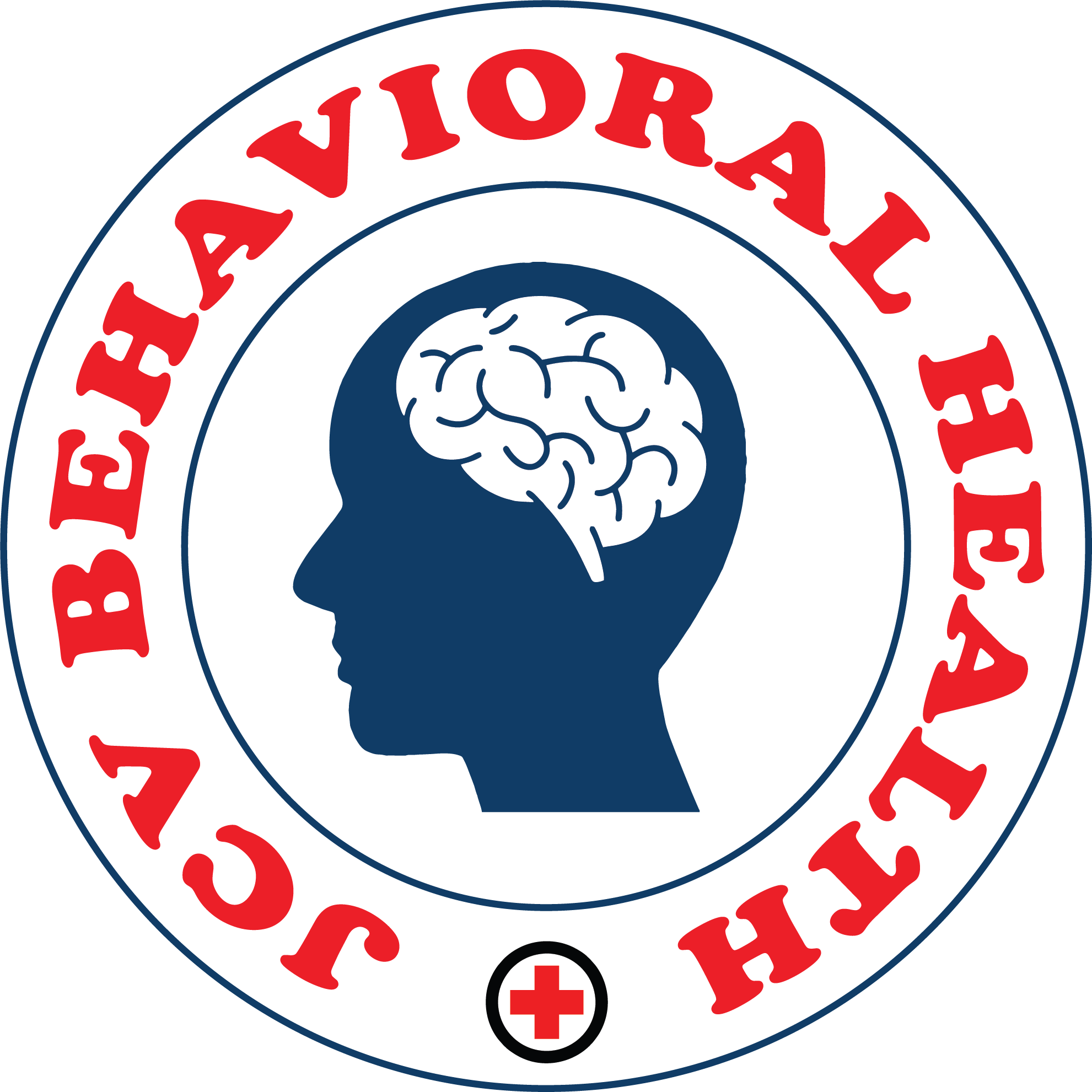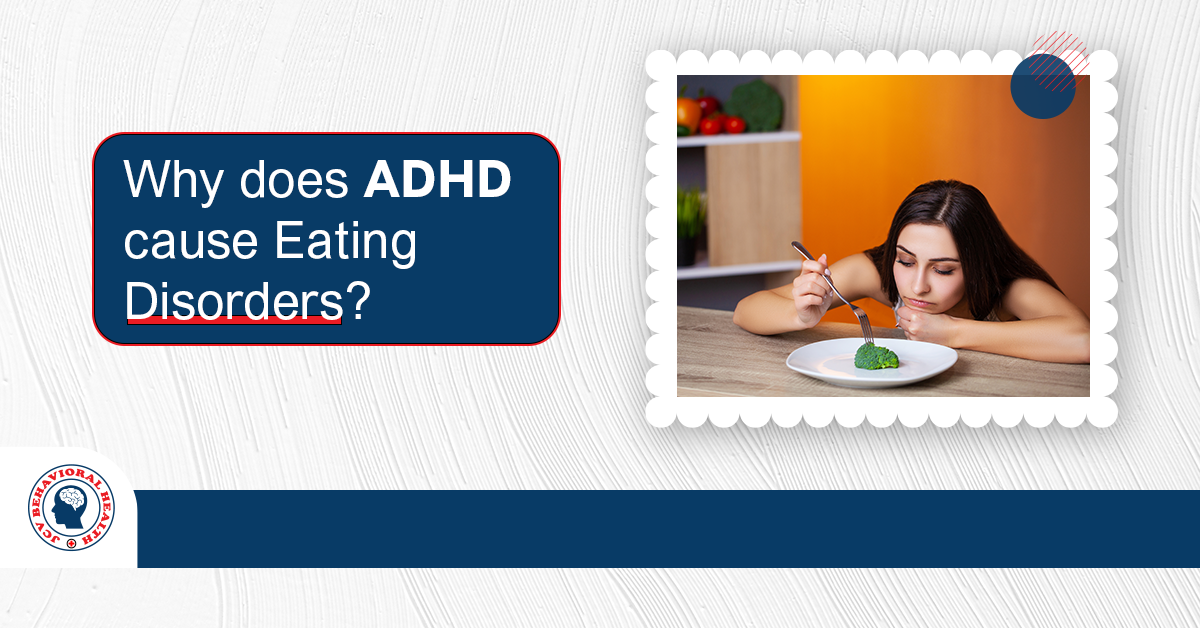ADHD (Attention Deficit Hyperactivity Disorder) often confuses many, particularly about how it influences what we eat. Some contemplate, “Why does ADHD cause eating disorders?
ADHD can harm our relationship with food. It can trigger binge eating, anorexia, and food compulsions. Realizing why this happens is vital for improved care.
Need help with someone who has ADHD and eating disorders? JCV Behavioral Health is ready to assist. We provide expert advice and services for managing medications. Contact us today.
Moving forward, we’ll delve into whether “Can ADHD cause eating disorders?” and its link to binge eating, anorexia, and obsessive eating patterns.
ADHD and Its Impact on Daily Life
What Is ADHD?
ADHD is a brain development condition. ADHD affects both kids and adults. It involves trouble focusing, being overly active, and acting without thinking.
The disorder is more than concentration issues. It also affects relationships, school, and daily tasks. Each person’s experience is unique.
Symptoms vary, leading to different challenges. It, in turn, shapes how people interact with the world.
ADHD symptoms are pretty obvious. Often, they involve:
- Struggling to focus on specifics
- Getting sidetracked easily by other things happening around
- Struggling to put tasks and activities in order
- Forgetting to do daily tasks
These signs can throw off every day routines, such as eating and being off balance.
How Does ADHD Affect Daily Routines?
ADHD’s unpredictability disrupts daily routines and meal patterns. It leads to erratic eating schedules, making consistent nutrition difficult. It can hurt health and wellness.
Can ADHD Cause Eating Disorders?
At this moment, to discuss the principal issue, “Can ADHD cause eating disorders?” ADHD itself might not cause eating disorders directly. It heightens the potential for establishing adverse eating routines.
Research shows that people with ADHD are at a higher risk of eating disorders, such as binge eating, bulimia, and anorexia.
Why Does ADHD Cause Eating Disorders?
ADHD impacts impulse control, emotion regulation, and daily tasks like eating. Below, we will discuss eating disorders commonly found in individuals with ADHD.
ADHD and Binge Eating Disorder
A usual eating disturbance linked with ADHD is binge eating disorder. ADHD binge eating is every day.
Many with ADHD use food to cope with emotional issues or impulsive behavior. They might eat a lot in a short time and feel a lack of control, which is typical of binge eating and ADHD.
ADHD binge eating disorder can stem from trouble with routines. For instance, someone with ADHD might forget to eat during the day. It leads to extreme hunger at night, triggering a binge eating episode.
ADHD and Anorexia
One more eating disorder connected to ADHD is anorexia. ADHD may lead individuals to focus intensely on specific tasks.
It may lead them to restrict food and develop eating disorders and ADHD. ADHD and anorexia can coexist. It can create a dangerous cycle of restrictive eating.
ADHD patients on Adderall risk anorexia. The drug suppresses appetite, leading to skipped meals and potentially disordered eating.
ADHD and Bulimia
Bulimia is like a binge eating disorder. It involves eating too much and then getting rid of the food. ADHD and bulimia are linked. They both have impulse control issues.
People with ADHD might binge eat and then purge to regain control. It makes managing and treating both conditions tougher.
Compulsive Eating and ADHD
Compulsive eating happens when people eat without hunger, often due to emotional issues or impulsivity.
ADHD’s impulsivity can make it hard to control eating. People might eat without being hungry, leading to weight gain and distress.
Is Forgetting to Eat an Eating Disorder?
People with ADHD often forget to eat. When focused on a task, they might skip meals.
They may overlook the need for food. This behavior may not be an eating disorder. But it can still have serious consequences.
Forgetting to eat can disrupt hunger signals. It may cause overeating later, which is linked to ADHD.
Eventually, this can cause detrimental food behaviors. It may contribute to eating disorders like binge eating.
ADHD and Food Obsession
People with ADHD often experience ADHD food obsession, fixating intensely on certain foods. These fixations can lead to unhealthy eating and dieting.
They might obsess over certain foods or diets, constantly thinking about food. This focus breeds anxiety, making meals stressful instead of nourishing.
Such dietary preoccupations complicate managing ADHD symptoms.
Treatment for ADHD-Related Eating Disorders
Treating ADHD and eating disorders together leads to better recovery. Here are some options:
Behavioral Therapy: CBT helps control impulses and emotions. It teaches healthier habits and addresses both issues, improving self-control and eating.
Medication: Stimulants like Adderall and Concerta can impact eating habits. They may help some, but caution is needed. These drugs can worsen disorders like anorexia or binge eating. Careful monitoring is crucial.
Nutritional Counseling: A health advisor can assemble meal arrangements. They will improve your mental and physical health.
Conclusion
In summary, it’s crucial to know “Why does ADHD cause eating disorders?” It is essential for individuals and their families.
ADHD harms eating habits. It causes binge eating, compulsive eating, and forgotten meals. Seeing these patterns and getting support can improve health and food relationships.
The link between ADHD and eating is complex. Those facing both issues need compassionate care and effective management strategies. By raising awareness, we can better support those with ADHD and eating disorders.
FAQs
Q: Can ADHD lead to all eating disorders?
Yes, ADHD can trigger eating disorders due to focus and impulse control issues.
Q: How can a person with ADHD control their eating?
Mindful eating, set routines, and expert advice improve food choices and support healthy diets.
Q: What should parents know about ADHD and eating disorders?
Notice food routines in children with ADHD. Encourage healthy eating and seek expert advice to spot issues.
Q: Is forgetting to eat a symptom of ADHD?
Yes, it can be. It relates to awareness challenges and routine management.







